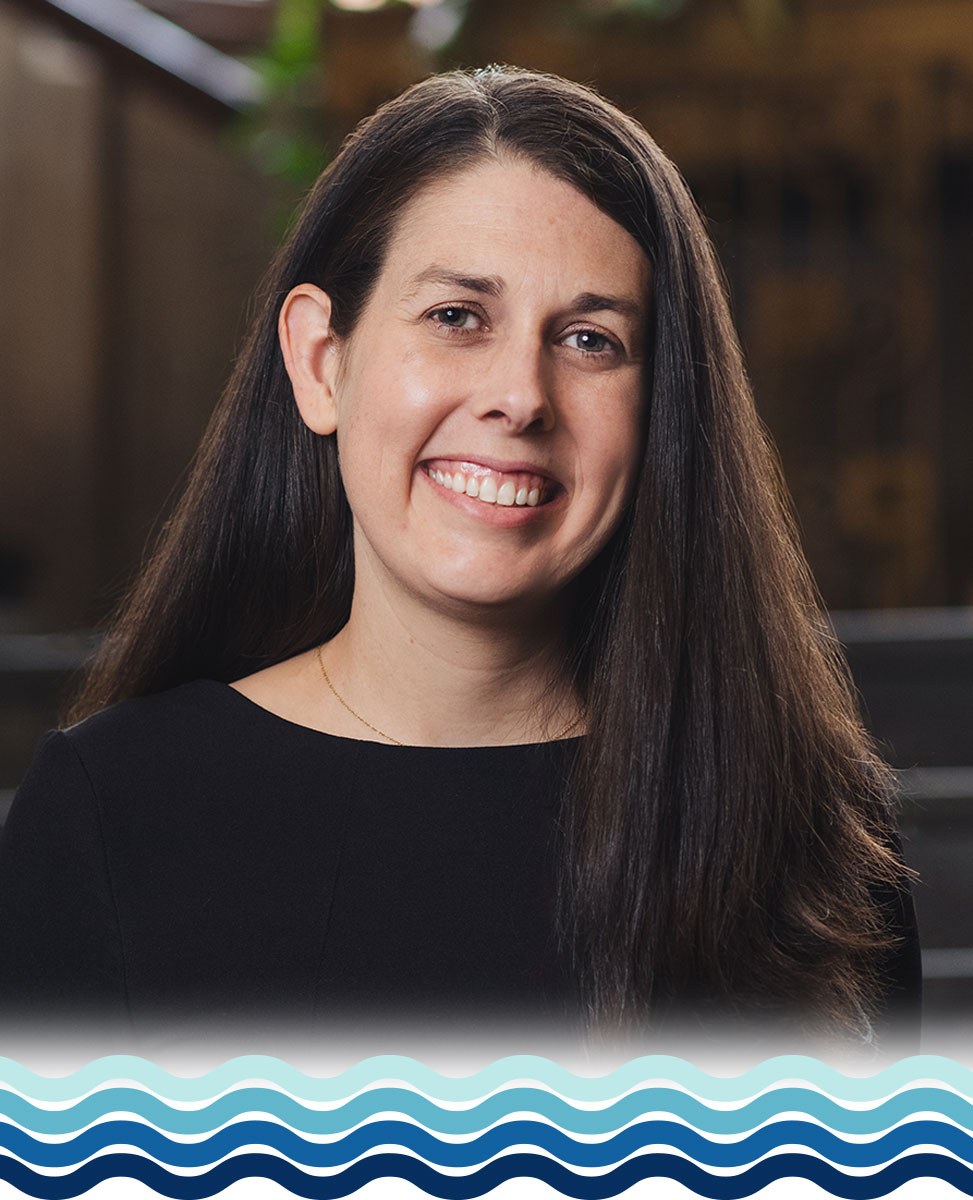Elizabeth, 'Betsy,' Parkinson
Assistant Professor
Purdue University
Talk Information
Peptide Synthesis and Innovation
16 June 2025, 03:15pm - 03:40pm, in the Pacific Jewel Ballroom
L17 -AW – Utilizing Bioinformatics, Biocatalysis, and Synthetic Chemistry to Access Natural Product-Inspired Cyclic Peptides

Award Recipient
2025 APS Early Career Award
Established in 2019 and sponsored by the American Peptide Society, the Early Career Lectureship recognizes outstanding early career investigators who have demonstrated innovative research in peptide science. Two recipients will be chosen biennially and each will deliver a talk at the Symposium in a session appropriate to their work. The APS will support the registration, lodging at the conference hotel and up to $1000 in travel expenses of the awardees.
Assistant Professor Elizabeth I., "Betsy," Parkinson holds a joint appointment in the Department of Chemistry and the Department of Medicinal Chemistry and Molecular Pharmacology at Purdue University. Her research focuses on the discovery and development of novel bioactive natural products from cryptic bacterial biosynthetic gene clusters, aiming to address pressing challenges such as antibiotic resistance and cancer.
Academic Background
Dr. Parkinson earned her B.S. in Chemistry from Rhodes College in 2010, where she conducted undergraduate research at St. Jude Children's Research Hospital under Dr. Philip Potter, focusing on reducing the toxicity of the chemotherapeutic irinotecan. She completed her Ph.D. in Chemistry at the University of Illinois at Urbana-Champaign in 2015, working with Professor Paul Hergenrother on synthesizing derivatives of anticancer natural products and studying their mechanisms of action. Following her doctoral studies, she pursued postdoctoral research with Professor William Metcalf in Microbiology at UIUC, investigating the biosynthesis of phosphonate-containing natural products and developing metabologenomics approaches for natural product discovery.
Research Focus
Professor Parkinson's laboratory is dedicated to uncovering novel natural products from soil-dwelling bacteria, particularly Streptomyces species. Her team employs chemical synthesis, bioinformatics, and high-throughput screening to activate and study cryptic biosynthetic gene clusters. By exploring these uncharacterized pathways, they aim to discover new antibiotics and anticancer agents, as well as understand the unique chemistries performed by natural product biosynthetic enzymes.
Notable Contributions
Dr. Parkinson has significantly advanced the field of natural product chemistry through her work on the synthesis and characterization of bioactive compounds. Her research has led to the development of more soluble derivatives of anticancer and antibiotic natural products, enhancing their therapeutic potential. Additionally, her efforts in metabologenomics have provided new methodologies for the discovery of natural products from previously silent gene clusters.
Professional Engagements
Beyond her research, Professor Parkinson is actively involved in teaching and mentoring at Purdue University, where she has also contributed to initiatives supporting mental health awareness among graduate students. She is a member of the American Chemical Society, the Society for Industrial Microbiology and Biotechnology, and the American Society of Pharmacognosy. Her commitment to education and outreach reflects her dedication to fostering the next generation of scientists.
Through her innovative research and dedication to education, Assistant Professor Elizabeth I. Parkinson continues to make significant contributions to the fields of natural product chemistry and chemical biology.
Utilizing Bioinformatics, Biocatalysis, and Synthetic Chemistry to Access Natural Product-Inspired Peptides
Department of Chemistry and Department of Medicinal Chemistry and Molecular Pharmacology, Purdue University, West Lafayette, Indiana, USA
Cyclic peptide natural products (NPs) from the soil-dwelling Actinomycetota are a bountiful source of bioactive molecules, including medicines, agricultural products, and chemical tools to study biological processes. Additionally, the biosynthetic enzymes that produce them perform unique chemistries and are excellent starting points for biocatalysts.
Unfortunately, many biosynthetic gene clusters (BGCs, clusters of genes that encode for the enzymes that produce NPs) are cryptic. Accessing cyclic peptide NPs from these cryptic BGCs is quite challenging, thus slowing the discovery of novel bioactive cyclic peptides that can serve as leads for medicines and agricultural products.
Herein, we are using bioinformatics predictions followed by direct chemical synthesis to access NP-inspired cyclic peptides from cryptic BGCs. These peptides have been screened for a variety of activities, leading to novel antibiotic and antiamoebic leads. Additionally, we are discovering and utilizing the biosynthetic enzymes to access otherwise challenging-to-access cyclic peptides.
Overall, these approaches enable us to access cyclic peptides that are otherwise inaccessible, thus helping to expand the medicinal and agricultural pipelines.

